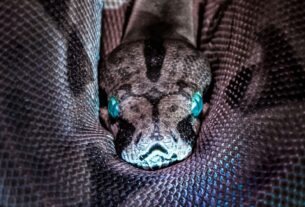The Art of Settling for Less – iPhone 16e – Learned Helplessness
Sometimes little is better than nothing. That’s what they tell themselves. That’s what they tell you. The old man working two shifts at a job he hates, the woman trapped in a loveless marriage, the kid who wanted to be an astronaut but now flips burgers and tells himself it’s just “for now.”
A man who owns a pigeon in a cage would love to own an eagle—the king of all birds, wild and untamed. But eagles aren’t for men like him. Eagles need space, sky, something bigger than a cage. So he looks at his little pigeon, ruffling its feathers in that tiny prison, and tells himself, Better pigeon in a cage, than an eagle in the sky.
Because at least the pigeon is his. At least it won’t fly away. At least he can hold it, feed it, keep it. The eagle? That’s just a dream, something meant for other men—richer men, braver men. So he convinces himself he never really wanted the eagle in the first place.
Crow sits with crow, looking for an equal. That’s the way of things. You find your people. You surround yourself with those who think the same way, act the same way, shrink the same way. It makes it easier. If everyone around you is crawling, you don’t have to think about how you were once built to run.
So they lower the bar. They let their dreams slip through their fingers like cheap sand, not because they don’t want them, but because the weight of reaching is too damn much.
Look at them. Look at you. The guy who wanted the best, the biggest, the shiniest. The latest and greatest. The iPhone 16 Pro Max. But the numbers don’t add up, the paycheck doesn’t stretch far enough, so he settles. He gets the iPhone 16e, a lesser version, tells himself it’s enough.
And maybe it is. Maybe it isn’t.
Maybe he stares at that screen, scrolling through his life, knowing deep down he wanted something more.
And maybe you do too.
The Psychology of Settling
Psychologists have spent decades studying why people trade ambition for convenience, why they settle for scraps instead of fighting for the feast. It has a name: Learned Helplessness—a term coined by Martin Seligman in the 1960s. Seligman’s experiments showed that when people or animals are exposed to repeated failure or hardship with no way out, they eventually stop trying, even when escape becomes possible. They learn to stay in their cages, even when the door swings open.
Then there’s Cognitive Dissonance, a term from Leon Festinger. When reality slaps you in the face and tells you that you’ll never be who you wanted to be, your brain does mental gymnastics. It convinces you that you never wanted that dream anyway. That the small life, the safe life, was always the goal. It’s not settling—it’s being realistic.
Look at Viktor Frankl, the psychiatrist who survived Nazi concentration camps and wrote Man’s Search for Meaning. He saw firsthand how people stripped of hope, of purpose, became empty shells. But he also saw those who refused to let the fire go out, who held onto something greater than comfort. He argued that suffering without meaning breaks a man, but suffering with meaning? That’s how legends are born.
Then there’s the famous Rat Park experiment by Bruce Alexander in the 1970s. Caged rats, given unlimited morphine, drank themselves into a stupor. But rats in a stimulating, free environment—rats with purpose—ignored the drug. The ones trapped in a cage took the easy way out. The ones who had something to fight for didn’t need to.
And history is full of stories of people choosing the easy cage instead of the wild unknown. Look at East Berlin before the Wall fell—thousands of people living in a crumbling system, knowing they were trapped, but telling themselves it was better than the chaos of the West. Or the Soviet Union’s “refuseniks”, dissidents who spent their lives behind the Iron Curtain, knowing that the price of freedom was too high, so they convinced themselves they never really wanted it anyway.
Or even the modern office worker, who once dreamed of writing novels, making films, starting a revolution—but now sits in a cubicle, scrolling through emails, trading dreams for a secure supply of dry bread.
Settling isn’t new. It isn’t rare. It’s the way of the world.
The real question is—are you going to convince yourself you’re happy in the cage?
Or are you going to find a way to fly?



